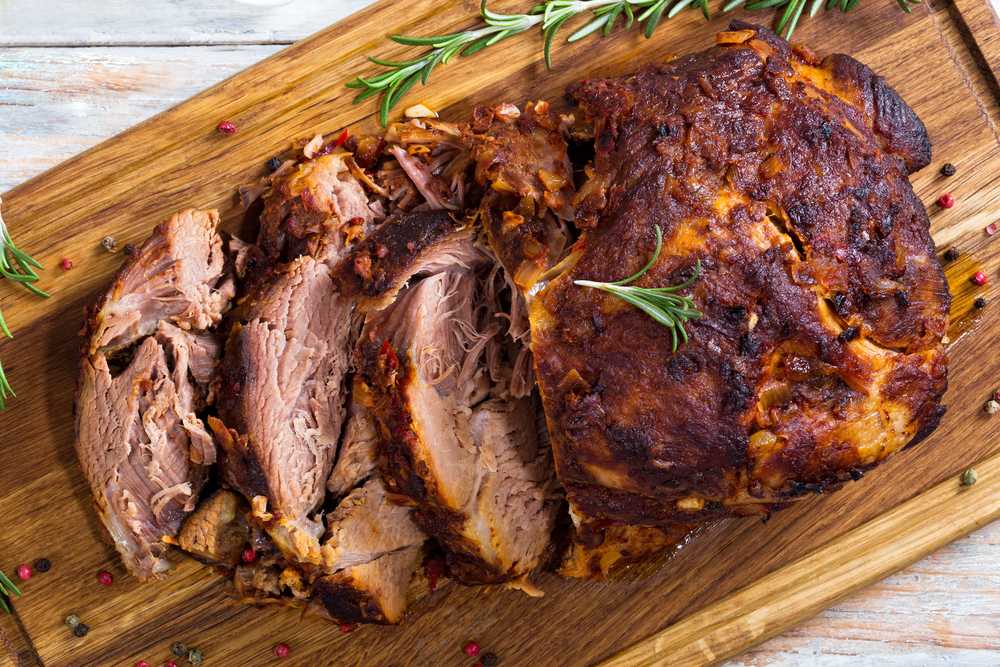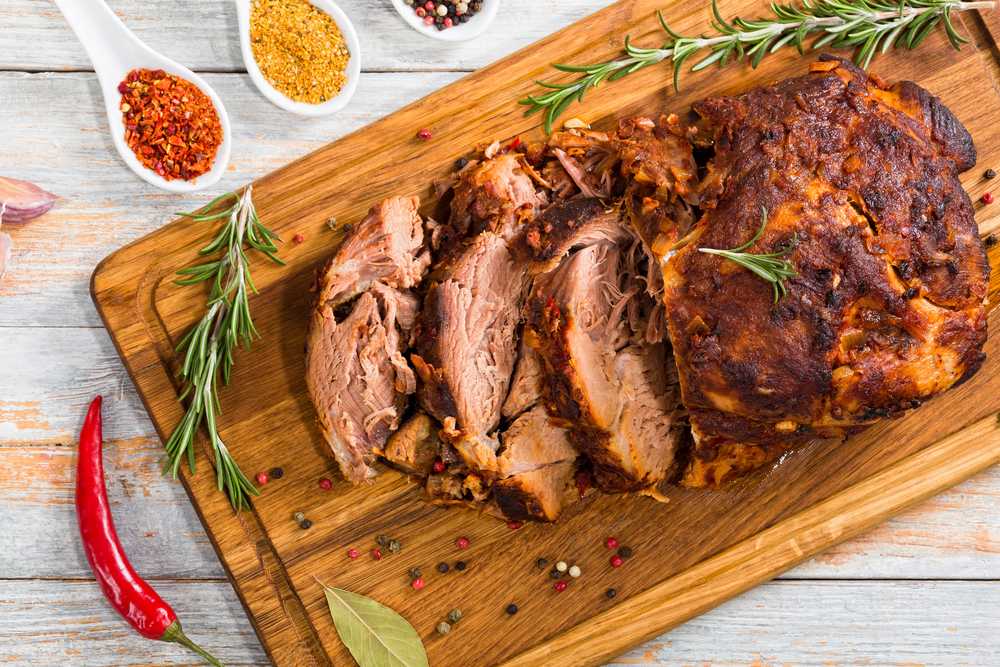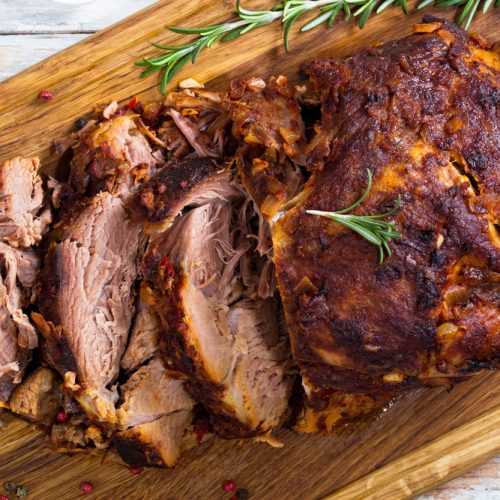Roasted pork shoulder is a delicious and flavorful dish that's perfect for a special meal or gathering. The pork shoulder, also known as pork butt or Boston butt, is a cut of meat that comes from the upper part of the pig's shoulder. When roasted, it becomes tender and juicy with a crispy exterior.

This recipe will guide you through the process of preparing a mouthwatering roasted pork shoulder. With just a few simple steps, you can create a delectable centerpiece for your next meal that will impress your family and friends. Let's get started!
Table of Contents
Why This Recipe Works
This roasted pork shoulder recipe is a culinary delight that offers a myriad of reasons why you should make it. Firstly, the slow roasting method employed in this recipe ensures that the pork shoulder becomes incredibly tender and succulent. The lengthy cooking time allows the fat to render, creating a crispy and flavorful exterior while keeping the meat moist and juicy on the inside. The result is a melt-in-your-mouth texture that is sure to impress both family and guests alike.
Additionally, the seasoning and flavors in this recipe are carefully chosen to enhance the natural taste of the pork shoulder. The combination of aromatic herbs, such as rosemary and thyme, along with garlic and spices, creates a harmonious blend that infuses the meat with a rich and tantalizing taste. As the pork shoulder slowly roasts in the oven, these flavors permeate the meat, resulting in a truly delectable and aromatic dish.

Ingredients
Pork Shoulder - This is the star of the recipe. It's a flavorful cut of meat that becomes tender when cooked for a long period. If pork shoulder is not available, pork butt can be a good substitute.
Garlic - Adds an aromatic and savory flavor to the pork. If fresh garlic is not available, you can use garlic powder or minced garlic from a jar.
Salt - Brings out the natural flavors of the meat and the other ingredients. You can substitute regular table salt with sea salt or kosher salt for a different flavor profile.
Black Pepper - Gives a bit of heat to the dish. If black pepper is not available or if you prefer a different type of heat, you can use red pepper flakes or cayenne pepper.
Olive Oil - Helps to brown the pork and adds a rich flavor. Canola or vegetable oil can be substituted if olive oil is not available.
Tips
- Marinating the pork shoulder overnight can help to tenderize the meat and infuse it with more flavor.
- Before roasting, let the pork shoulder come to room temperature. This will allow it to cook more evenly.
- For a crispy skin, roast the pork shoulder at a high temperature for the first 30 minutes, then lower the temperature for the rest of the cooking time.
- Use a meat thermometer to ensure that the pork shoulder is cooked to the correct internal temperature of 145°F.
- After roasting, let the pork shoulder rest for about 15-20 minutes before carving. This allows the juices to redistribute throughout the meat.

How to Serve
Roasted pork shoulder is a versatile dish that can be served in a number of ways. Its rich, savory flavor pairs well with a variety of side dishes, from roasted vegetables to creamy mashed potatoes. Its hearty nature makes it a great centerpiece for any meal.
- Sandwiches: Shred the pork and serve it in a soft bun topped with barbecue sauce and coleslaw for a satisfying sandwich.
- Tacos: Dice the pork and use it as a filling for tacos. Add some fresh salsa, cheese, and avocado for a delicious Mexican night.
- With Rice: Serve the pork shoulder alongside some fragrant jasmine rice and stir-fried vegetables for an Asian-inspired meal.
Similar Recipes

Roasted Pork Shoulder
Ingredients
- 4 poundspork shoulder
- 5 cloves garlic minced
- 1 tablespoonsalt
- 1 teaspoonblack pepper
- 2 tablespoonsolive oil
Instructions
- Preheat your oven to 450°F.
- Rub the pork shoulder with the minced garlic, salt, black pepper, and olive oil.
- Place the pork shoulder in a roasting pan.
- Roast in the preheated oven for 30 minutes.
- Lower the oven temperature to 325°F and continue roasting for about 4 hours, or until the internal temperature reaches 145°F.
- Let the pork shoulder rest for 15-20 minutes before carving.
Nutrition
Notes
- Marinating the pork shoulder overnight can help to tenderize the meat and infuse it with more flavor.
- Before roasting, let the pork shoulder come to room temperature. This will allow it to cook more evenly.
- For a crispy skin, roast the pork shoulder at a high temperature for the first 30 minutes, then lower the temperature for the rest of the cooking time.
- Use a meat thermometer to ensure that the pork shoulder is cooked to the correct internal temperature of 145°F.
- After roasting, let the pork shoulder rest for about 15-20 minutes before carving. This allows the juices to redistribute throughout the meat.
I printed out a few of your recipes that sound delicious. I have a question. None of the recipes say whether or not they need to be covered. Namely, the roasted pork shoulder (which I can't wait to make) and the boneless pork ribs in oven. I'd feel better if I knew whether or not they need a lid. Thank you!